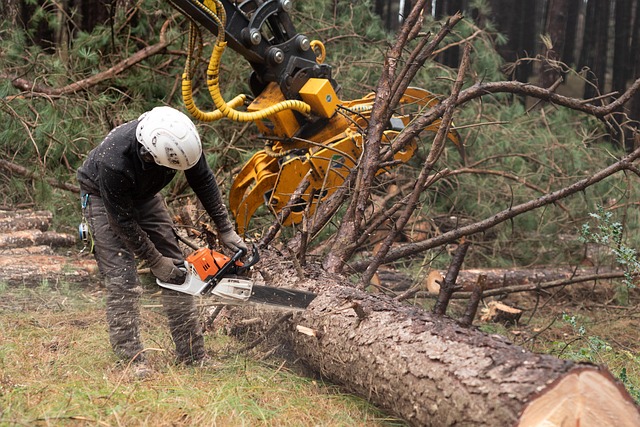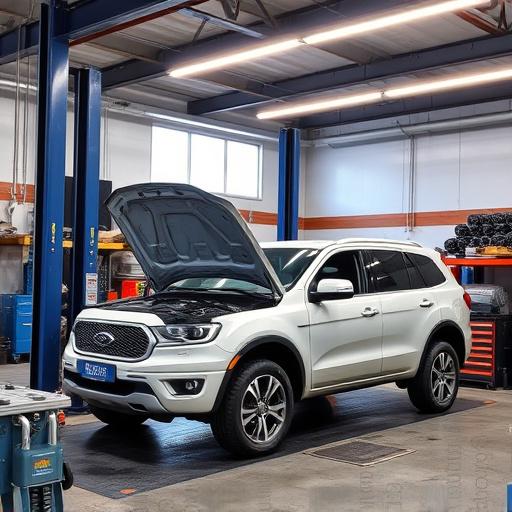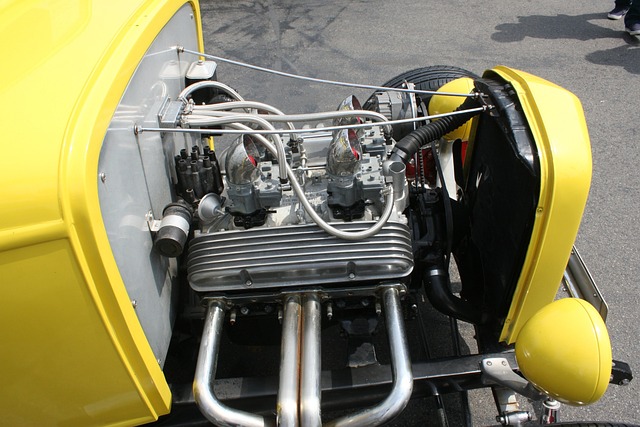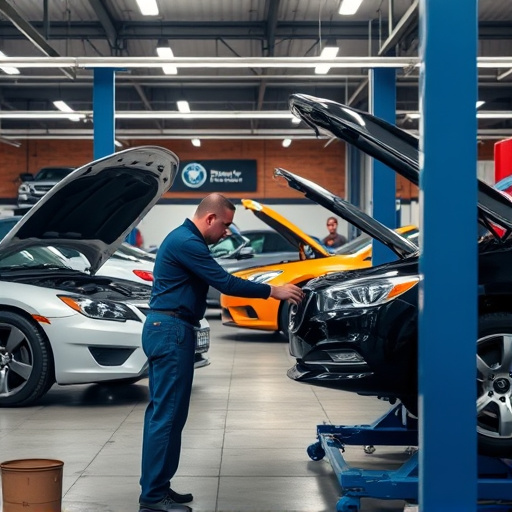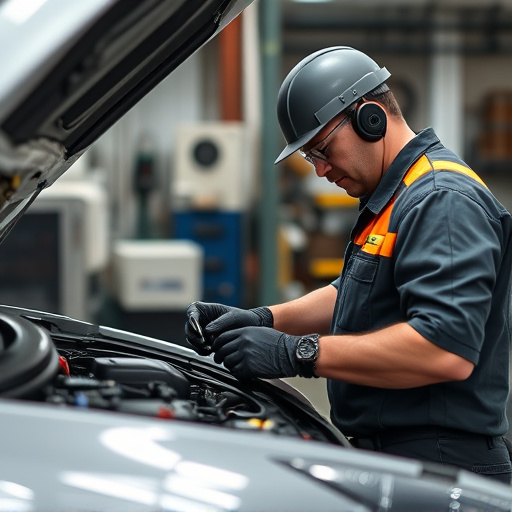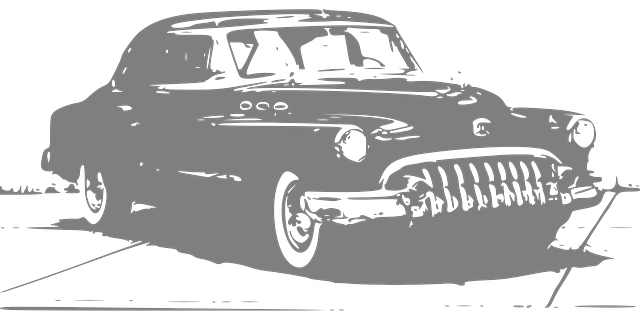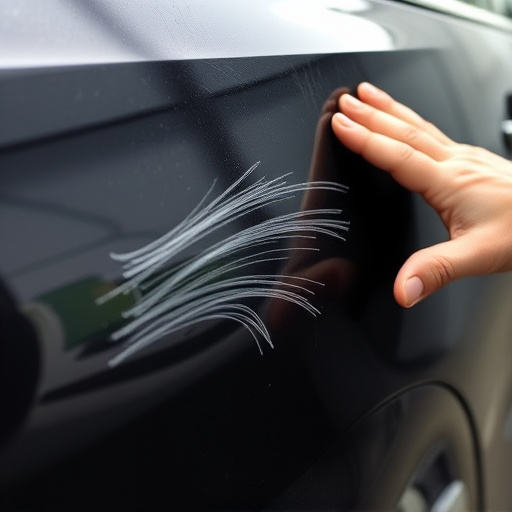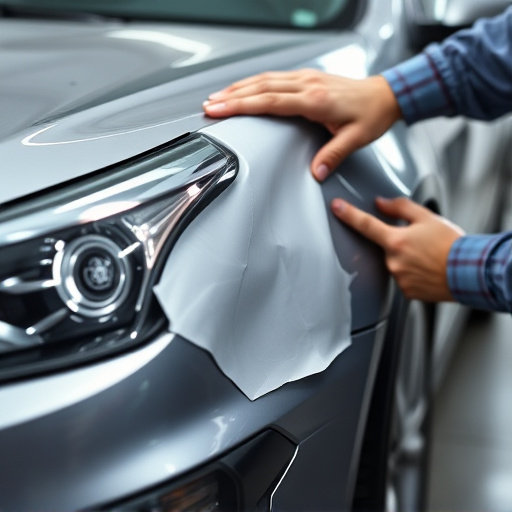A radiator replacement accident is more than a mechanical issue; it's an environmental concern. Radiators regulate engine temperature and prevent overheating, which can lead to coolant leaks causing soil and water contamination if not promptly addressed through professional autobody repairs. Old radiators and components may contain toxic substances like asbestos or lead, underscoring the need for specialized recycling methods to avoid ecological harm. In today's eco-conscious climate, adopting sustainable practices like efficient cooling systems and environmentally friendly materials in radiator replacement and body repairs is crucial for regulatory compliance, enhanced corporate reputation, and a greener future.
A radiator replacement accident may seem like a mere mechanical issue, but it highlights a critical aspect of environmental compliance. This article delves into the process of radiator replacements and their profound environmental implications. We explore the hidden costs associated with improper disposal, emphasizing the need for sustainable practices. By understanding these dynamics, businesses and individuals can make informed choices, contributing to a greener future while mitigating the environmental impact of radiator replacement accidents.
- Understanding Radiator Replacements: An Overview
- Environmental Impact: The Hidden Costs of Disposal
- Sustainable Practices: A Step Towards Compliance
Understanding Radiator Replacements: An Overview

When a vehicle experiences a radiator replacement accident, it’s not just about fixing a broken part—it’s a crucial step in maintaining environmental compliance. Radiators are integral components that regulate an engine’s temperature, preventing overheating and potential damage. During accidents, these critical parts can be compromised, leading to leaks of coolant, which is often a mix of water and antifreeze. If left unattended, such leaks can cause severe environmental harm by contaminating soil and water bodies.
Promptly addressing a radiator replacement accident through professional autobody repairs ensures that any potential ecological damage is mitigated. Skilled technicians not only replace the damaged radiator but also inspect and repair other related components like auto glass, which may have been affected during the incident. Fleet repair services, in particular, play a significant role here by offering efficient and specialized care for commercial vehicles, ensuring that these crucial repairs are completed swiftly and to a high standard, thereby promoting both safety and environmental stewardship.
Environmental Impact: The Hidden Costs of Disposal

In the aftermath of a radiator replacement accident, it’s not just the immediate damage that needs attention; the environmental impact often goes unnoticed but is equally significant. The disposal of old radiators and associated components can lead to substantial hidden costs. These costs aren’t merely financial; they extend to the ecological realm, where toxic substances within the radiator, if not handled properly, can contaminate soil and water bodies.
The process of car dent repair or vehicle body repair after such an incident is crucial, but it’s equally important to consider the environmental consequences. Old radiators, often containing hazardous materials like asbestos or lead, require specialized recycling methods to prevent these substances from entering the environment during disposal. This aspect, though not immediately visible, underscores the need for responsible vehicle maintenance and accident management, ensuring that the hidden costs of disposal are minimized, contributing to broader environmental compliance.
Sustainable Practices: A Step Towards Compliance

In today’s eco-conscious world, every industry is under pressure to adopt sustainable practices and contribute to environmental compliance. The automotive sector, in particular, has been undergoing a significant transformation. When it comes to ensuring ecological responsibility, even seemingly minor components like radiators play a crucial role. A simple radiator replacement accident can serve as a catalyst for embracing eco-friendly solutions.
By implementing efficient cooling systems and choosing environmentally friendly materials during auto body repairs, including hail damage repair or frame straightening processes, businesses can reduce their carbon footprint. These practices not only support regulatory compliance but also foster a reputation for being responsible corporate citizens. As such, adopting sustainable methods in auto repairs, particularly when addressing radiator issues, is a proactive step towards a greener future.
Radiator replacement, while seemingly a routine task, highlights the importance of environmental compliance. By understanding the potential impact of these accidents and adopting sustainable practices, we can significantly reduce the hidden costs associated with disposal. This not only protects our planet but also fosters a more responsible and compliant approach to automotive maintenance. Embracing eco-friendly solutions is a crucial step towards a greener future, ensuring that everyday actions contribute to a cleaner, more sustainable world.
